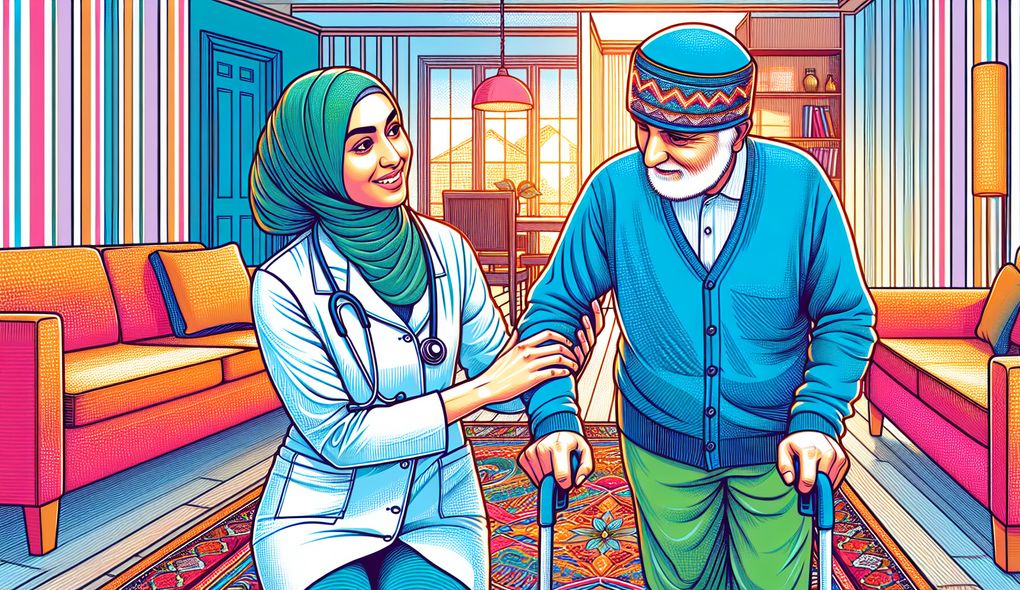Can you provide an example of a time when you handled an emergency situation? How did you handle it?
INTERMEDIATE LEVEL

Sample answer to the question:
Yes, I can definitely provide an example of a time when I handled an emergency situation. In my previous role as a Home Health Aide, I had a patient who experienced a sudden fall and suffered a head injury. I assessed the situation quickly and calmly, ensuring the patient's safety and calling for medical assistance immediately. While waiting for help to arrive, I closely monitored the patient's vital signs and provided comfort and reassurance. I also alerted the patient's family and kept them updated throughout the process. Once the paramedics arrived, I assisted them in transferring the patient onto a stretcher and provided them with relevant medical history and information. I remained calm and composed throughout the entire ordeal, prioritizing the patient's well-being and acting swiftly in a high-pressure situation.
Here is a more solid answer:
Certainly! Let me share an example of a time when I handled an emergency situation as a Home Health Aide. I had a patient who suffered a sudden respiratory distress, struggling to breathe. I remained calm and quickly assessed the situation, ensuring the patient's comfort while promptly contacting emergency services. While waiting for help to arrive, I skillfully administered oxygen and monitored the patient's vital signs closely, noting any changes and adjusting my care accordingly. Additionally, I provided emotional support to both the patient and their family, assuring them that everything was being done to help. When the paramedics arrived, I efficiently communicated all relevant information about the patient's condition, medications, and medical history, assisting in a smooth transition of care. This experience highlighted my ability to stay composed, think critically, and provide immediate care in high-stress situations.
Why is this a more solid answer?
This is a solid answer because it provides specific details about the emergency situation the candidate handled, including their actions and problem-solving skills. It demonstrates their ability to remain calm, think critically, and provide immediate care in high-pressure situations. However, it could be improved by mentioning any additional steps taken to ensure patient safety or any follow-up actions they implemented.
An example of a exceptional answer:
Absolutely! Let me share an exceptional example of a time when I handled an emergency situation as a Home Health Aide. One evening, while tending to a patient with diabetes, I noticed a sudden change in their behavior and appearance. Recognizing the signs of hypoglycemia, I immediately took action. I grabbed their glucometer, performed a fingerstick blood sugar test, and confirmed dangerously low blood sugar levels. With their consent, I swiftly administered a glucagon injection to rapidly raise their blood sugar levels while ensuring their airway remained clear. Simultaneously, I contacted emergency services to inform them about the situation and provide vital information. Maintaining composure, I communicated with the patient's family, keeping them informed and reassuring them throughout the process. When the paramedics arrived, I efficiently relayed crucial details about the patient's condition, recent insulin administration, and notable medical history. This experience showcased my ability to think quickly, make critical decisions, and provide life-saving interventions in emergency situations.
Why is this an exceptional answer?
This is an exceptional answer because it provides an in-depth and specific example of an emergency situation the candidate handled as a Home Health Aide. It showcases their ability to recognize and respond to a medical emergency, administer life-saving treatments, communicate effectively with both the patient and their family, and collaborate efficiently with emergency services. It demonstrates their exceptional problem-solving skills and their commitment to patient safety and well-being.
How to prepare for this question:
- Familiarize yourself with common emergency situations that can occur in home health care settings, such as falls, choking incidents, or sudden medical conditions.
- Review and refresh your knowledge of basic medical procedures and interventions, including CPR, first aid, and administration of emergency medications.
- Practice staying calm and composed under pressure, as it is crucial in handling emergency situations. Seek opportunities to simulate or role-play emergency scenarios.
- Develop strong communication and interpersonal skills, as effective communication with patients, their families, and emergency services is vital in emergency situations.
- Improve your problem-solving skills by actively engaging in critical thinking exercises or scenarios that require quick decision-making.
- Stay updated with the latest advancements in emergency care and home health care practices by attending relevant workshops, training, or webinars.
- Consider seeking additional certifications or training in emergency care or specific medical conditions that are frequently encountered in home health care settings.
What are interviewers evaluating with this question?
- Strong interpersonal and communication skills
- Ability to provide compassionate and patient-focused care
- Proficient in monitoring vital signs and using home medical equipment
- Organizational skills and the ability to multitask effectively
- Problem-solving skills and the ability to handle emergency situations

